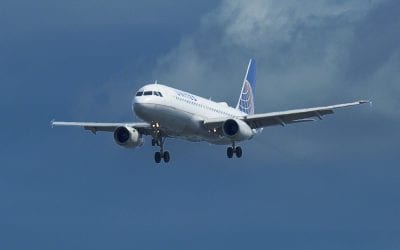Baldanza defends cabin bag fee, meets with government officials
The CEO of Spirit Airlines came to Washington to defend his airline’s decision to impose carry-on baggage fees. CEO Ben Baldanza met with Secretary of Transportation Ray LaHood, FAA Administrator Randy Babbit and a clutch of Senators and Congressmen. He also addressed the International Aviation Club.
Baldanza said forward sales for travel from Aug. 1, when the new charge will be imposed, are “significantly better” than in the year-ago period and also considerably better than before the charge was announced. “We’ve seen nothing from customers that suggests they don’t like it,” he said.
Discussing the reasons behind the move, Baldanza said mishandled and falling carryon bags are the leading cause of customer and flight attendant injury and also slow down the boarding process, contributing to flight delays. Until Spirit imposed a checked baggage fee, 65% of passengers checked their bags but now just 50% do.
Sen. Oberstar expects serious antitrust review of Continental/United merger
Sen. Oberstar isn’t one who believes that bigger is better. He has spoken out against airline alliances and has not favored recent airline mergers. During the approval process of this current merger, Oberstar is calling for a detailed review of the benefits of any merger.
The chairman of the US House of Representatives Transportation Committee expects a “more serious” antitrust review of the merger proposal by United Airlines and Continental Airlines than was conducted for the last big combination of US carriers.
Representative James Oberstar also told reporters that US airlines can compete without merging, and that big airlines, through consolidation and alliance networks, are seeking to “lock up” travel globally.
Oberstar opposes the United/Continental merger, and believes there is a “different spirit” at the Justice Department on antitrust than during the more business-friendly Bush administration, which swiftly cleared the 2008 merger by Delta Air Lines and Northwest Airlines.
Can airlines be ranked for safety?
Sometimes passengers want to know which airline is the safest. A collection of safety specialist all say that there really is no way to rank safety. There are reports of accidents but no rankings of airlines.
“The rationale behind that is that, in this country at least, airline accidents are such rare occurrences that there is really no meaningful statistical measure of safety that you could assign to any one airline,” FAA spokesman Les Dorr said.
The European Aviation Safety Agency also does not offer airline safety ratings, according to Safety Information and Communications Officer Dominique Fouda.
The European Commission — the executive body of the European Union — does maintain a list of airlines “found to be unsafe,” which are banned from operating in European airspace.
But there is no central repository for collecting data from all the airlines around the world that would help determine their statistical safety or risk, said Greg Feith, an international aviation safety and security consultant and a former senior NTSB investigator.
(Photo: Boeing 787 overhead bins)

Charlie Leocha is the President of Travelers United. He has been working in Washington, DC, for the past 14 years with Congress, the Department of Transportation, and industry stakeholders on travel issues. He was the first consumer representative to the Advisory Committee for Aviation Consumer Protections appointed by the Secretary of Transportation from 2012 through 2018.




